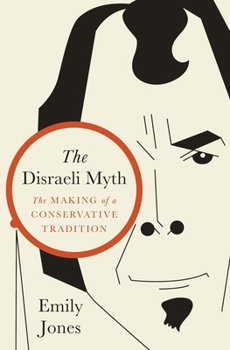The Disraeli Myth: The Making of a Conservative Tradition
Tracing the multifaceted construction and deployment of the Disraeli myth and its legacy in Conservative (and conservative) politics
During his lifetime, Benjamin Disraeli, the late-Victorian Conservative Prime Minister (and popular novelist), was often branded as unprincipled and opportunistic--claims that were frequently laced with antisemitism. Yet in the century following his death in 1881, Disraeli's life and ideas were appropriated, reconstructed and circulated to cast him as the founder of a socially minded "One Nation" brand of British conservatism. In this compelling study, Emily Jones traces the mythologising that made Disraeli a touchstone for Conservative (and conservative) politics. Jones shows how each generation and its political thinkers--from Karl Marx to Margaret Thatcher--has made and remade Disraeli in its own image, seeing in him a source of inspiration or legitimation in different contexts and in support of disparate policies. Drawing on sources that range from political speeches to Hollywood films, Jones charts the posthumous transformation of Disraeli into a paragon of "One Nation" conservatism. A mythical Disraeli was invoked by contemporaries developing distinctly Tory conceptions of democracy, empire and social policy that nonetheless reaffirmed the importance of social hierarchy, private property and low taxation. As the two-party system began to realign around an axis of welfare and economic management in the interwar period, Disraeli's political utility reached its zenith--a position, Jones shows, significantly bolstered by new interpretations of Disraeli's Jewishness, the emerging university disciplines of history and English literature and the rise of the Labour Party. Jones's authoritative account offers an illuminating new perspective on the role historical narratives have had in shaping accounts of political reality, ideology and identity in modern Britain.Format:Hardcover
Language:English
ISBN:0691246319
ISBN13:9780691246314
Release Date:June 2026
Publisher:Princeton University Press
Length:296 Pages
Customer Reviews
0 rating





